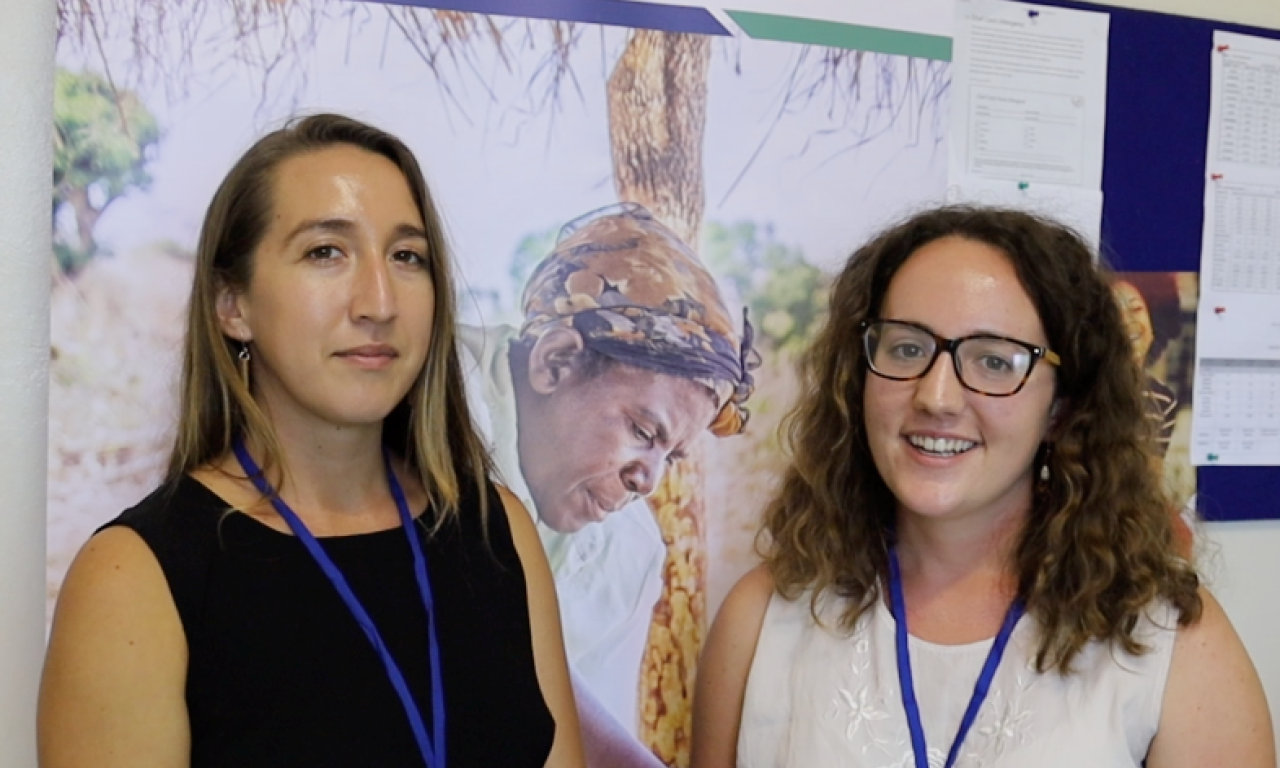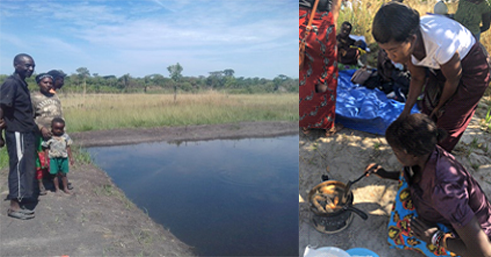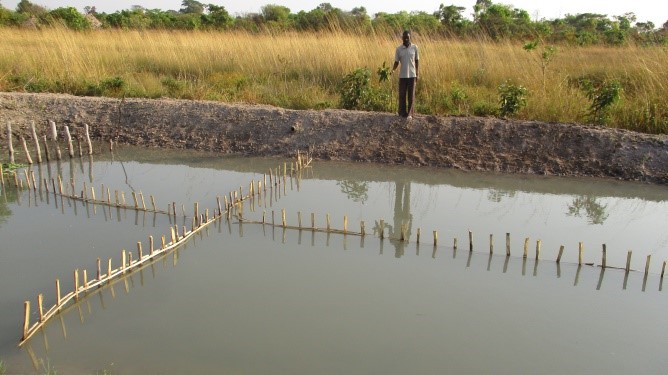
We sat down with Taryn Cadena and Katharine (Katie) Thomas, two young women who were invited to attend the Nutrition-sensitive Fish Agri-food Systems workshop, held in Lusaka, in late February, and had an engaging conversation about their experiences working in the field in Zambia. They have been living in Zambia for almost two years, serving as volunteers with the Peace Corps, a volunteer program run by the government of the United States of America. Taryn volunteers in the Rural Aquaculture Project (RAP), and Katie, in the Community Health Empowerment Project (CHEP). They are both based in Luwingu, Northern Province, a rural area, approximately 950 km north of Zambia’s capital, Lusaka.
The Peace Corps volunteer program was founded in 1961, with the aim to provide social and economic development abroad through technical assistance, while promoting mutual understanding between Americans and the populations they serve. The program had involved more than 230,000 volunteers, serving in 141 countries since its inception, and is now active in more than 60 countries worldwide. The Peace Corps has had projects in Zambia since 1994, and is engaged in seven sectors, including agriculture, education, environment and health. Zambia is the only country in which aquaculture is included in the agriculture sector.
Taryn began work in the aquaculture sector, with the Department of Fisheries, establishing small-scale earthen fish ponds in Kawambwa District, Luapula Province. She met Lucinda Middleton and Muleya Syapwaya, two interns working for WorldFish while they were surveying areas in Luwingu to implement a nutrition-sensitive pond polyculture pilot project. Using her fluency in Bemba, Taryn joined the project, facilitating the communication of knowledge and information to the target communities, and importantly, helping to build trust between the villagers and the WorldFish team. Taryn also used her experience in establishing a fish farming co-operative in Kawambwa to initiate a similar co-operative in Luwingu. Taryn will join the WorldFish team to conduct an end-line study as soon as they all return to Luwingu, after the workshop in Lusaka.
“As a Peace Corps volunteer, I acquired proper cultural and professional experience to be able to conduct village-appropriate aquaculture management training in the various local languages spoken throughout Zambia. Fish, the most common animal-source food in Zambia, contains multiple essential nutrients, which make diets healthy and nutritious. Increasing fish supply can help to fill the nutritional gap faced by families, and particularly, in young children. To function as a volunteer extension agent for the Department of Fisheries, at the district level, I must figure out how to implement and improve aquaculture practices in the communities in which I work, as well as assist the staff of the Department of Fisheries to connect with fish farmers in the rural areas. I also have a responsibility to build partnerships with other district government sectors.” says Taryn Cadena
Farming is usually hard work in these remote rural areas; adopting new farming approaches and changing practices are perceived by farmers as immensely risky. Peace Corps volunteers are trained to understand such risks before they are placed within communities. All Peace Corps volunteers are trained for three months in the USA before being placed in project countries for two years, with the option to stay longer. Peace Corps volunteers are taught how to use their training, knowledge, skills and passion to facilitate change and improvements in poor rural communities. A volunteer who is driven by the idea of doing good in the world, excited about broadening her horizon, as well as picking up local languages, can make quite a difference.

As a Peace Corps volunteer, working in the health sector in Luwingu district, I was invited to participate in the workshop on nutrition-sensitive fish agri-food systems in Lusaka. I realized that the nutrition of people can be improved by taking a multi-sectoral approach, involving both the health and aquaculture sectors. Peace Corps country directors and program managers need to be better informed and engage in collaborative activities for such collaboration to further flourish and extend to other countries,” explains Katie Thomas.
In the CHEP, Katie focuses on improving maternal and child health in communities, through capacity building and educational interventions. She works with communities in Luwingu, organizing cooking demonstrations and health and nutrition counseling to increase food accessibility and improve dietary diversity. She is also actively engaged in developing and disseminating public health training materials for the fish farmers in the nutrition-sensitive pond polyculture pilot project.

The collaboration between WorldFish and Peace Corps in Zambia is unique and beneficial in advancing both organizations’ work towards achieving the Sustainable Development Goals of ending hunger and malnutrition, as well as eradicating poverty in developing countries. The data and information gathered by the Peace Corps volunteers in the communities in which they work have been instrumental in setting the foundation for further research and policy development. WorldFish’s commitment to furthering research for development in fish agri-food systems across Africa, Asia and the Pacific, will require a close partnership with Peace Corps that in turn can contribute to scaling up nutrition-sensitive approaches to aquaculture and fisheries that will create long-lasting positive impacts for local communities.
Note: Due to the COVID-19 pandemic, all Peace Corps projects have been suspended and the volunteers have been evacuated to the United States of America.
Donors and Partners: IFAD, EU, Department of Fisheries, Peace Corps